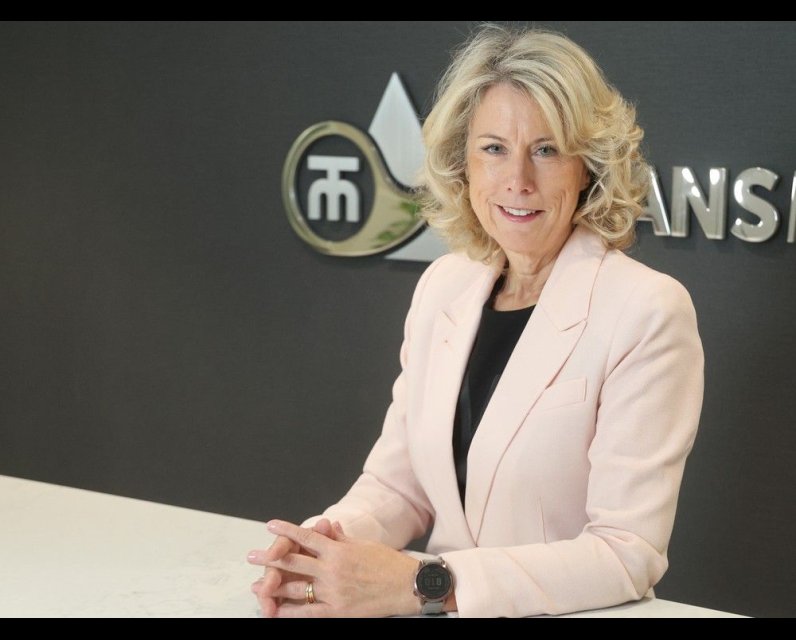Former Trans Mountain CEO Dawn Farrell to head Ottawa's major projects office

OTTAWA — Former Trans Mountain CEO Dawn Farrell will be spearheading the federal government’s one-stop shop to help proponents of major infrastructure projects get shovels in the ground.
Prime Minister Mark Carney vowed the major federal projects office would be operational by Labour Day. On Friday, Carney’s office announced Farrell, who has four decades of experience in the energy sector, will be taking the job as CEO of the major projects office.
“I am thrilled that Dawn Farrell, one of Canada’s most experienced executives, is stepping up to help lead this vital priority,” said Carney, in a press release.
The major projects office will be headquartered in Calgary and have offices in other major Canadian cities, according to the press release.
During her career, Farrell has held senior executive roles at B.C. Hydro and TransAlta before serving as CEO of Trans Mountain. She is currently chair of the company’s board of directors.
In her new role, Farrell will be in charge of making sure the federal government’s chosen nation-building projects see the light of day by accelerating regulatory approval processes and bypassing the usual bureaucratic hurdles these projects face.
Carney’s office said the office will “benefit from the expert advice” of an Indigenous advisory council — comprised of First Nations, Metis and Inuit representatives. The membership of the council will be confirmed in September.
But don’t expect the government to release a list of nation-building projects anytime soon.
Two government officials, speaking to the National Post on a not-for-attribution basis to discuss internal matters more freely, said Canadians can expect a slow roll of projects — with one or two projects unveiled at a time — to be announced starting in the next two weeks.
The idea, said one of the officials, is to choose nation-building projects that are basically ready to go and can start construction in the short to medium term.
Carney said this week his government could prioritize port expansions — in Contrecoeur, about 40 kilometres northeast from Montreal on the St. Lawrence River, and the Port of Churchill in northern Manitoba with direct access to the Hudson Bay.
The two projects also happen to be priorities for Quebec Premier François Legault and Manitoba Premier Wab Kinew, respectively.
The Contrecoeur project, meant to expand capacity for the Port of Montreal, which is running out of space, has been years in the making. It proposes to develop a container port terminal with a maximum annual capacity of 1.15 million 20-foot equivalent units (TEUs).
The port expansion has also already been the subject of environmental assessments.
A federal report dated 2021 concluded that “the project is not likely to cause significant adverse environmental effects, taking into account the implementation of key mitigation measures” to preserve wetlands and the copper redhorse, an endangered fish species.
The unprecedented powers set by the Building Canada Act, passed in June, could allow the federal government to bypass the regulations needed to protect the copper redhorse.
But Carney put a particular emphasis on the Port of Churchill, which he said this week has “much more to it than Contrecoeur in terms of what it potentially unlocks” — pointing to the possibility of exporting liquified natural gas (LNG) and critical minerals to Europe.
In recent years, the federal and provincial governments have invested millions of dollars in the Port of Churchill and the connecting Hudson Bay Railway, but they have been taking a closer look at the infrastructure in the region amid trade tensions with the United States.
With Canada looking to diversify its exports, investing in its only deep-water Arctic port would bolster shipments in the northern corridor. In addition, the shipping season, which is about four months, is set to extend with warmer temperatures due to climate change.
However, with the expected rise in activity, many questions remain such as the need for more infrastructure and housing in the far north of the province.
National Post calevesque@postmedia.com
Our website is the place for the latest breaking news, exclusive scoops, longreads and provocative commentary. Please bookmark nationalpost.com and sign up for our newsletters here.




Comments
Be the first to comment